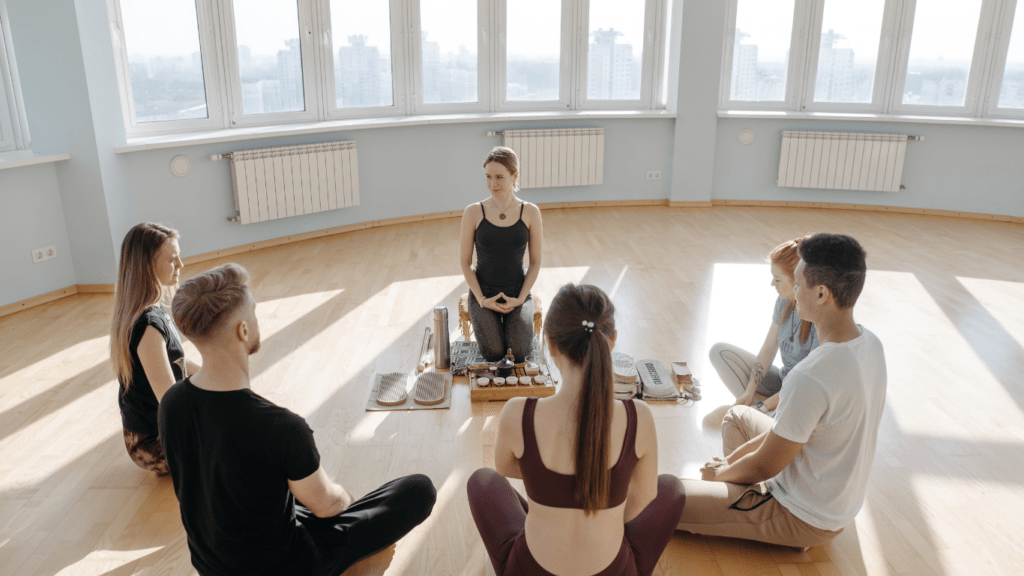Are you constantly juggling a hectic schedule and struggling to find moments of peace in your busy day? In today’s fast-paced world, it’s easy to feel overwhelmed and mentally exhausted. That’s where meditation comes in.
As someone who has experienced the chaos of a busy mind firsthand, I understand the challenges of trying to find stillness amidst the noise. In this article, I’ll share practical meditation techniques tailored for those with busy minds.
Whether you’re a working professional, a parent on-the-go, or simply someone trying to navigate the demands of modern life, incorporating these techniques into your daily routine can help you find moments of calm and clarity. Join me on this journey to discover how meditation can transform the way you approach each day.
Understanding Busy Minds
Busy minds can often feel like a tangled web of thoughts, constantly buzzing with activity. It’s essential to recognize that having a busy mind is a common experience in today’s fast-paced world.
These minds are filled with racing thoughts, to-do lists, worries, and distractions, making it challenging to find a moment of peace and quiet. Understanding busy minds involves acknowledging the constant mental chatter and restlessness that accompany them.
It’s crucial to realize that a busy mind is not a sign of weakness or inability to focus but rather a common phenomenon resulting from the demands of modern life. Embracing this understanding can help individuals navigate their busy minds more effectively and cultivate a sense of calm amidst the chaos.
Popular Meditation Techniques
I’ll now delve into some popular meditation techniques that can be beneficial for individuals with busy minds.
Mindfulness Meditation
Mindfulness meditation involves focusing on the present moment without judgment. It encourages individuals to observe their thoughts and emotions as they arise, helping to cultivate awareness and acceptance of the present reality.
Practicing mindfulness meditation for just a few minutes a day can help reduce stress and enhance mental clarity.
Transcendental Meditation
Transcendental meditation is a technique where practitioners silently repeat a mantra to achieve a state of relaxed awareness. This form of meditation aims to transcend thought and experience pure consciousness.
By incorporating transcendental meditation into your daily routine, you can promote deep relaxation and inner peace, making it easier to navigate the challenges of a busy mind.
Loving-Kindness Meditation
Loving-kindness meditation, also known as Metta meditation, involves directing feelings of love and compassion towards oneself and others. This practice fosters positive emotions, empathy, and a sense of interconnectedness with all beings.
By incorporating loving-kindness meditation into your day, you can cultivate a more compassionate and open-hearted approach towards yourself and others, which can be particularly beneficial for individuals with busy and sometimes stressful lives.
These meditation techniques offer valuable tools for individuals with busy minds to find moments of peace, clarity, and emotional balance in the midst of their hectic schedules. Integrating these practices into daily life can provide a sense of grounding and resilience, enhancing overall well-being and mental health.
Benefits of Meditation for Busy Minds
Exploring the advantages of meditation for busy minds reveals a myriad of benefits that can significantly enhance daily life. Through thoughtful practice, individuals can harness these advantages to navigate the challenges of a hectic world more effectively.
- Enhanced Focus and Concentration: Meditation cultivates a heightened sense of focus, enabling individuals to concentrate better amidst distractions and demanding schedules. By training the mind to center on the present moment, one can enhance productivity and efficiency in various tasks.
- Stress Reduction: Engaging in regular meditation sessions aids in reducing stress levels by promoting relaxation and diminishing the impact of overwhelming thoughts or external pressures. This can lead to a more composed and balanced approach to handling daily stressors.
- Improved Emotional Well-being: Meditation fosters emotional stability by fostering self-awareness and regulating emotions. By developing mindfulness and compassion through meditation practices, individuals can better manage their reactions to challenging situations and cultivate a deeper sense of inner peace.
- Enhanced Cognitive Function: Regular meditation has been linked to improved cognitive function, including enhanced memory, creativity, and problem-solving skills. By engaging in meditation, individuals can sharpen their mental capacities and adapt more effectively to complex tasks and decision-making processes.
- Better Sleep Quality: Incorporating meditation into daily routines can promote better sleep quality by relaxing the mind and body before bedtime. Improved sleep patterns contribute to overall mental clarity, energy levels, and mood regulation throughout the day.
- Increased Resilience: Meditation builds resilience by equipping individuals with the tools to navigate adversity and bounce back from challenges more effectively. By fostering a sense of inner strength and stability, individuals with busy minds can better cope with uncertainties and setbacks in their lives.
Incorporating meditation into daily routines offers a range of benefits for individuals grappling with busy minds, providing essential tools for establishing mental clarity, emotional balance, and overall well-being amidst the hustle and bustle of modern life.
Tips for Incorporating Meditation into a Busy Schedule
Exploring meditation techniques can seem daunting, especially when balancing a hectic lifestyle. However, with a strategic approach, integrating meditation into your busy schedule is achievable.
Here are practical tips to help you seamlessly incorporate meditation into your daily routine:
- Start Small: Begin with short meditation sessions; even just five minutes can make a significant difference. As you build consistency, gradually extend the duration to suit your schedule.
- Set a Routine: Choose a specific time each day for meditation. Whether it’s in the morning before starting your day or in the evening before winding down, consistency is key to forming a habit.
- Identify Triggers: Associate your meditation practice with an existing daily habit, like drinking coffee or brushing your teeth. This mental cue can help reinforce your meditation routine.
- Create a Dedicated Space: Designate a tranquil corner in your home or office for meditation. Keep it clutter-free and add calming elements like plants, cushions, or candles to enhance the atmosphere.
- Utilize Technology: Leverage meditation apps or online resources to access guided meditations tailored to your schedule and preferences. These tools can be invaluable for on-the-go practice.
- Practice Mindful Moments: Incorporate micro-meditation into your day by infusing mindfulness into routine activities, such as walking, eating, or commuting. This enables you to reap the benefits of meditation without setting aside a specific time.
- Be Flexible: Accept that some days your schedule may be more chaotic than others. It’s okay to adapt your meditation practice to fit the available time without feeling discouraged.
By implementing these practical tips, you can embrace the transformative power of meditation and weave moments of peace and mindfulness into your bustling daily routine.



 Mindfulness and Meditation Expert
Paulether Masterson is Aura Nature Spark's mindfulness and meditation expert, with extensive training in various meditation techniques and practices. She is dedicated to teaching individuals how to cultivate inner peace and resilience through mindfulness. Paulether offers workshops and resources that help clients incorporate meditation into their daily routines, enhancing their overall well-being. Her calming presence and insightful guidance inspire many to explore the transformative benefits of mindfulness in their lives.
Mindfulness and Meditation Expert
Paulether Masterson is Aura Nature Spark's mindfulness and meditation expert, with extensive training in various meditation techniques and practices. She is dedicated to teaching individuals how to cultivate inner peace and resilience through mindfulness. Paulether offers workshops and resources that help clients incorporate meditation into their daily routines, enhancing their overall well-being. Her calming presence and insightful guidance inspire many to explore the transformative benefits of mindfulness in their lives.
